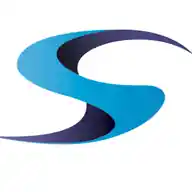overview
The White Horse Temple (Simplified Chinese: 白马寺; Traditional Chinese: 白馬寺; pinyin: Báimǎ Sì; Wade-Giles: Pai-ma szu), according to tradition, is China's first Buddhist temple, It was founded in the Eastern Han dynasty capital city of Luoyang in AD 68 under the patronage of Emperor Ming.This site is located 12 to 13 kilometers east of Luoyang in Henan Province, just outside the ancient Eastern Han capital. It is about 40 minutes by bus number 56 from Luoyang train station. Although the temple is small compared to many others in China, it is considered by most believers to be the "cradle of Chinese Buddhism". Geographical locations in the south are the Mangan mountain and the Lucoche River.
A large complex, the main temple buildings were rebuilt during the Ming (1368 - 1644) and Qing (1644 - 1912) dynasties. They were renovated in the 1950s and again in 1973 after the Cultural Revolution. Covering an area of approximately 13 hectares, it has several halls divided by courtyards and well-kept gardens. Chinese and English displays give extensive descriptions of the Buddhist deities placed in the halls. Notable statues include figures of saints such as Śākyamuni Buddha, Maitreya (laughing Buddha in China), Jade Buddha, Guru Avalokiteśvara, Amitābha, and stone statues of two white horses and two mythical lions who brought Indian priests to China. entrance. Under international funding, the temple has undergone many changes both structurally and internally. The closest collaboration project with India was completed in 2008 when the Sanchi Stupa and the Sarnath Buddha statue were erected. The temple is located in the eastern suburb of Luoyang, Kanan province, China. In the second dynasty, Ming Emperor Eihei 10 years (67 years), Mr. Kakoshi Kakoshi and Mr. Jeun Han brought Buddha statues and scriptures to Hakuba from the western region and sent them to Hakuba. ) and translation etc. let him know and tell him he founded Hakubaji for 75 years. There are Hakuba Temple ruins of the same name in Chang'an, Jianyang (Nanking), and Jingzhou (Keikyuu).
→ Related products Luoyang
Read: 202


